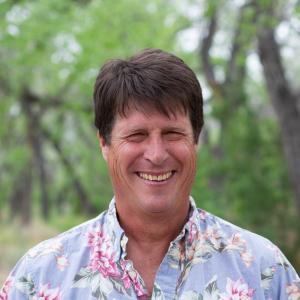Greg
Aplet, Ph.D.
1660 Wynkoop Street, Suite 1150
Denver, CO 80202
303-650-5818

Greg is our Director, Special Projects, specializing in ecosystem management and the conservation of biological diversity and forest ecosystem health. He joined The Wilderness Society in 1991 and has been part of the Society’s reviews of federal land management policy and planning initiatives throughout the country, including conservation plans for old-growth forests of the Pacific Northwest, biodiversity conservation in the Southern Appalachians, review of the Sierra Nevada Ecosystem Project, planning for the Grand Staircase-Escalante National Monument, the National Fire Plan, and conservation of old-growth and mature forests on federal lands..
Greg's background includes a B.S. in Forestry, an M.S. in Wildland Resource Science from the University of California, Berkeley and a Ph.D. in Forest Ecology from Colorado State University. He is the author of over one hundred publications on forest vegetation dynamics, the ecology of biological invasions, the conservation of biological diversity, wildland fire and wilderness management, collaborative conservation, and climate change adaptation.
Publications
Aplet, G. H., R. D. Laven and F. W. Smith. 1988. Patterns of community dynamics in Colorado Engelmann spruce-subalpine fir forests. Ecology 69:312-319.
Morgan, P., G. H. Aplet, J. B. Haufler, H. C. Humphries, M. M. Moore and W. D. Wilson. 1994. Historical range of variability: a useful tool for evaluating ecosystem change. Journal of Sustainable Forestry 2:87-111.
Aplet, G.H., Hughes, R.F., and P.M. Vitousek. 1998. Ecosystem development on Hawaiian lava flows: biomass and species composition. Journal of Vegetation Science 9:17-26.
Aplet, G. 1999. On the nature of wildness: exploring what wilderness really protects. University of Denver Law Review 76:347-367.
DeLuca, T.H. and G.H. Aplet. 2008. Charcoal and carbon storage in forest soils of the Rocky Mountain West. Frontiers in Ecology and the Environment 6:18-24.
Aplet, G.H. and D.N. Cole. 2010. The trouble with naturalness: rethinking park and wilderness goals. Ch. 2 in Cole, D.N. and L. Yung (eds.), Beyond Naturalness: Rethinking Park and Wilderness Stewardship in an Era of Rapid Change. Island Press, Covelo, CA.
North, M.P., S.L. Stephens, B.M. Collins, J.K. Agee, G. Aplet, J.F. Franklin and P.Z. Fulé. 2015. Reform forest fire management. Science 349:1280-1281.
Miller, C. and G.H. Aplet. 2016. Progress in wilderness fire science: embracing uncertainty. Journal of Forestry 114(3):373-383.
Aplet, G.H. and P.S. McKinley. 2017. A portfolio approach to managing ecological risks of global change. Ecosystem Health and Sustainability 3(2):e01261. doi: 10.1002/ehs2.1261.
Barnett, K., G.H. Aplet, and R.T. Belote. 2023. Classifying, inventorying, and mapping mature and old-growth forests in the United States. Frontiers in Forests and Global Change 5:1070372. doi: 10.3389/ffgc.2022.1070372
